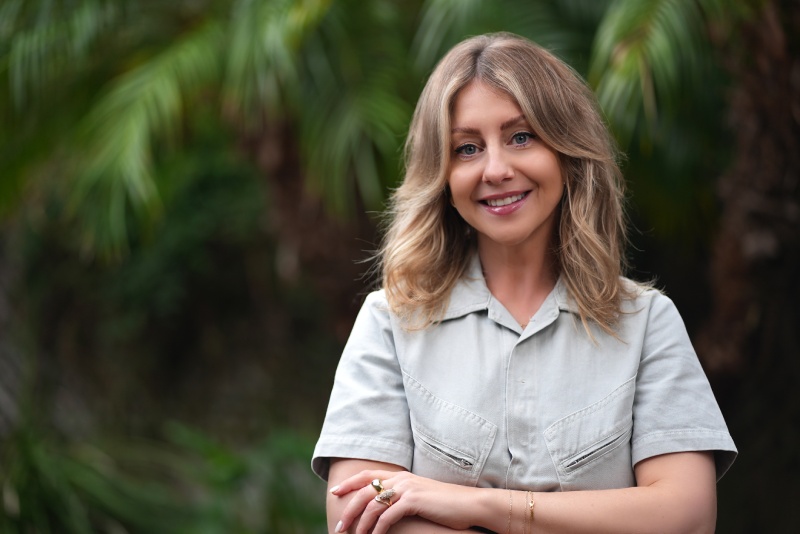The Art of the Celebrity Interview: Techniques from A Top TV Producer

As a TV producer with years of experience in the industry, I’ve had the privilege of working on countless celebrity interviews.
From Barbra Streisand to Jennifer Lopez, you have to not only think about the psychology and personality of the subject but also the right techniques to use to make them shine.
Any successful celebrity interview starts long before the cameras roll. Building a rapport with the interviewee is crucial. I often spend time understanding their background, recent projects, and interests.
This prep work is not just about mining for potential questions but also about creating a comfortable environment for the celebrity and showing respect for their work and them as individuals.
The interview setting plays a vital role. A relaxed guest is more likely to open up, so I ensure the environment is comfortable and inviting. Whether it’s a studio setup or an outdoor location, the ambience needs to be conducive to an intimate and genuine conversation.
Thorough research cannot be overstated. It’s not just about knowing the celebrity’s latest film or album; it’s about understanding their journey, their challenges, and their passions. This depth of knowledge allows me to ask more meaningful questions, often leading to responses that surprise even the celebrities themselves.
Crafting questions is where the artistry really comes in. I strive to balance personal, professional, and unexpected questions. The goal is to take the interviewee on a journey where they can share, reflect, and even discover new aspects of their story. Open-ended questions are key, as they give room for detailed responses.
Active listening is perhaps the most important skill in a celebrity interview. It’s not just about waiting for your turn to speak; it’s about being genuinely engaged with what the guest is saying. This engagement often leads to spontaneous and authentic moments that are the hallmark of a great interview.
Understanding the emotional undertones of an interview is vital. Celebrities are, after all, human beings with a spectrum of emotions. Being sensitive to their comfort levels and emotional state during the interview can make a significant difference. Sometimes, this means changing course mid-interview or diving deeper into an unexpectedly rich topic.
Flexibility is a must in this line of work. No matter how well you plan, interviews can take unexpected turns. A skilled producer must adapt swiftly and seamlessly. This might mean extending a segment that’s going exceptionally well or cutting short a line of questioning that’s not resonating.
Maintaining ethical standards is non-negotiable. While it’s important to probe and seek honest responses, it’s equally important to respect the interviewee’s boundaries. Sensationalism can never be the driving force of a good interview.
Post-interview, the editing process is where the story comes together. This phase is about enhancing the conversation’s flow, ensuring clarity, and preserving the interview’s integrity.
The final product should be a true reflection of the conversation, capturing its essence without distortion.
Ultimately, the goal is to connect with the audience. Whether it’s through laughter, empathy, or enlightenment, the interview should resonate with viewers.
It’s about creating a moment of shared humanity between the celebrity, the interviewer, and the audience.
Celebrity interviews are a delicate blend of preparation and spontaneity, structure and flexibility.
As a TV producer, my role is to facilitate a conversation that feels both intimate and revealing, offering viewers a glimpse into the lives of those they admire. It’s a responsibility I don’t take lightly, but one that brings immense satisfaction when artfully executed.
About the Author Claire Mooney
Claire Mooney is a BAFTA-nominated production journalist and producer. She has carved a distinguished career in both news and entertainment sectors across the UK and the United States.
She has produced interviews with some of the world’s most high-profile celebrities. including Barbra Streisand, Eva Longoria, Nicolas Cage, Anthony Hopkins, Reese Witherspoon, Ashton Kutcher, Chris Pratt and Jennifer Lopez.
Most recently she has worked with the British TV host Jonathan Ross on The Oscars Live on ITV.
Based in Los Angeles, Claire’s expertise spans a broad range of media production, from field/story producing to directing and post-production.
She has worked as the LA Senior Producer at UK TV shows Lorraine and Good Morning Britain since 2017 and has been instrumental in managing the LA Bureau for the two programs.
Her role involves covering breaking news, conducting world-exclusive interviews, and producing entertainment content across the US. Claire has shown exceptional skill in talent management, guest booking, and introducing viral segments, along with setting up topical debates.
As a producer at ‘Meet Marry Murder’ she took on the challenging role of a booker and field producer for the adaptation of the hit UK true-crime series.
Working on one of America’s most successful daytime talk shows, Dr. Phil, Claire was responsible for finding and booking guests with extraordinary stories. Here she showcased her exceptional ability to work to tight deadlines and ensure factual accuracy, particularly in relation to legal evidence and guest testimonies.
Claire also produced the one-hour documentary Piers Morgan: The Trump Interview in 2016. She was pivotal in managing the production on location in LA and Florida.
She brings a unique blend of creativity, journalistic integrity, and production excellence to every project. Her ability to navigate complex stories and present them compellingly makes her an asset to any media and broadcasting team.
Claire is also a film and television voting member of BAFTA and a member of the Telly Awards Judging Council.